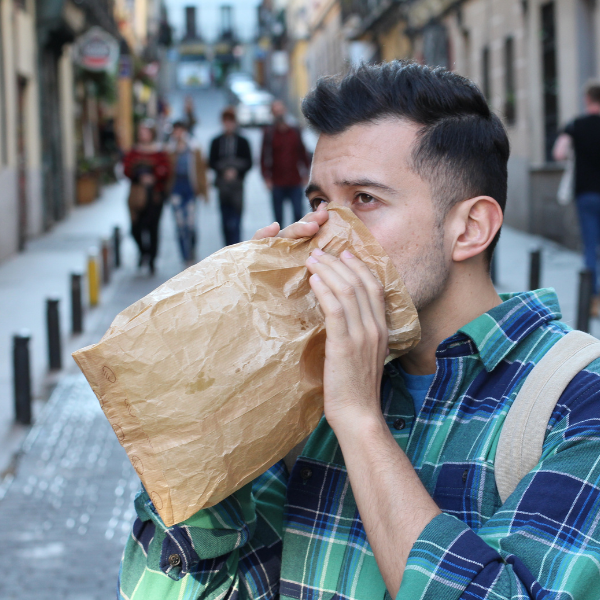 Anxiety and depression are two distinct terms but have overlapping mental health conditions. Both have some common features and key differences.
Anxiety and depression are two distinct terms but have overlapping mental health conditions. Both have some common features and key differences.
Anxiety:
is characterised by excessive worry, fear, or uneasiness about future events. It is often linked to anticipation of a threat or danger. It can manifest physically with symptoms such as restlessness, muscle tension, increased heart rate, sweating, trembling and fatigue. Individuals with anxiety may experience racing thoughts, difficulty concentrating, and a heightened state of alertness. Anxiety is often triggered by specific situations or events, and it can vary in intensity. Common anxiety disorders include generalised anxiety disorder (GAD), panic disorder, and social anxiety disorder.
Depression
is characterised by persistent feelings of sadness, hopelessness, and a lack of interest or pleasure in activities that were once enjoyable. It can lead to physical symptoms such as changes in appetite and sleep patterns, fatigue, and aches and pains. Individuals with depression may experience feelings of worthlessness, guilt, difficulty concentrating, and recurrent thoughts of death or suicide. Depression is often characterised by a longer-lasting low mood that persists for at least two weeks or more.
Overlapping
 It's common for individuals to experience both anxiety and depression simultaneously, a condition known as comorbid anxiety and depression. Both anxiety and depression can involve negative thought patterns, albeit focused on different aspects (anxiety on future events, depression on the self).
It's common for individuals to experience both anxiety and depression simultaneously, a condition known as comorbid anxiety and depression. Both anxiety and depression can involve negative thought patterns, albeit focused on different aspects (anxiety on future events, depression on the self).
It's important to note that the above are generalisations, and individuals may experience a wide range of symptoms that do not neatly fit into one category or the other. Mental health conditions are complex, and a professional assessment is crucial for accurate diagnosis and appropriate treatment. Here's where hypnotherapy can help.
Hypnotherapy involves using hypnosis to induce a sleep-like state in which the individual becomes highly focused, relaxed, and approachable to new ideas. Here's where hypnotherapy might potentially help with anxiety and depression: It often involves relaxation techniques that can help reduce stress and anxiety. This can contribute to an overall sense of well-being. It may be used to explore and address negative thought patterns and can help individuals reframe and restructure their thoughts in a more positive way.
Hypnotherapy can be utilised to teach individuals coping skills, such as visualisation and self-hypnosis, to manage anxiety and depressive symptoms and aims to access the subconscious mind, where deep-seated beliefs and emotions may reside. This can provide an opportunity to explore and address underlying issues that may be contributing factors, enhancing self-esteem and confidence, addressing feelings of worthlessness or inadequacy. It's important to note that while some individuals find hypnotherapy beneficial, its effectiveness can vary from person to person. Additionally, hypnotherapy is not a standalone treatment for severe mental health conditions, and it should be used in conjunction with other evidence-based therapies and under the guidance of a qualified mental health professional.


